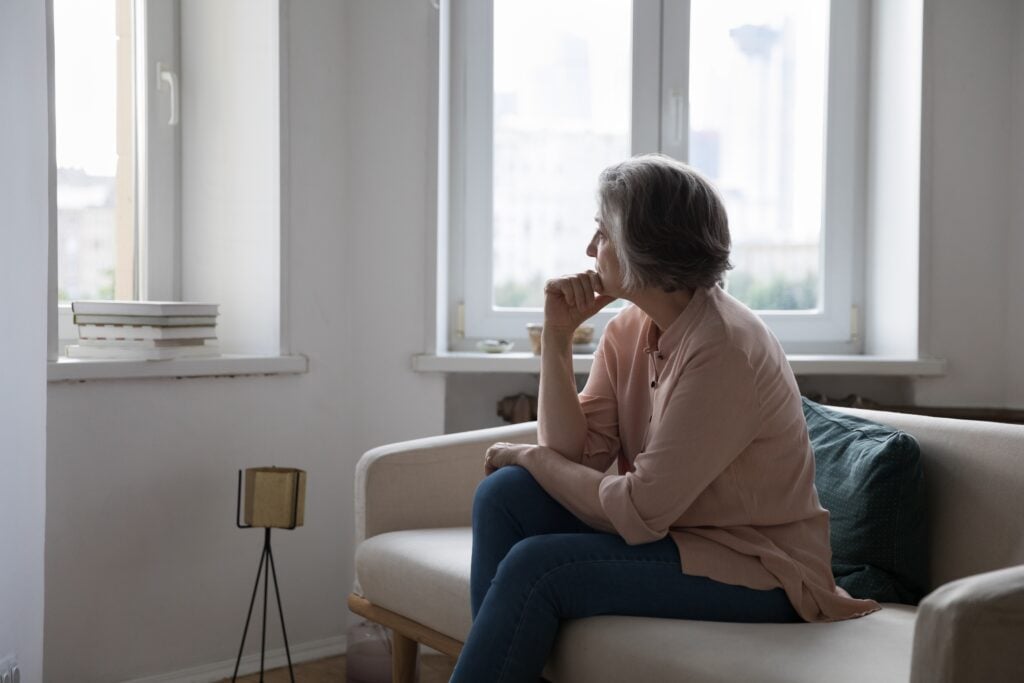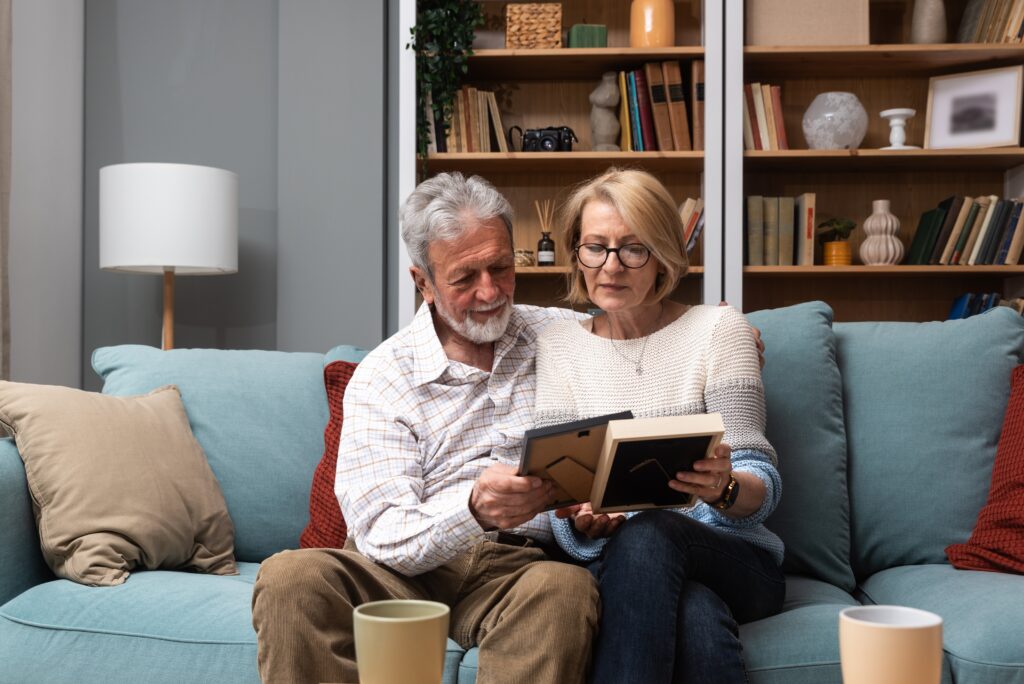Staying in a marriage without love is draining your happiness, stealing your time, and costing you the life you truly deserve.

You might think staying in a loveless marriage is the safer choice—that starting over would be too painful, too disruptive, or too uncertain. But what if that sense of security is actually a trap? What if each year you stay, hoping things might improve, you’re slowly eroding your sense of self, your energy, and your future happiness?
If you’ve been questioning your relationship, this could be the wake-up call you need. There are signs—real, undeniable signs—that love has quietly left the building. And if you find yourself nodding along, it might be time to ask a bigger question: What are you really holding onto, and what are you giving up in return?
1. You Believe Staying Is Easier Than Starting Over

The idea of starting from scratch can feel terrifying, especially if you’ve spent years building a life with someone. You may tell yourself it’s not that bad or that everyone has ups and downs. But deep down, you know you’re not thriving—you’re just surviving. Choosing to stay because it feels “easier” is often a form of self-protection that backfires.
What seems easier now may turn into a slow, painful erosion of your spirit, your goals, and your happiness. Life isn’t meant to be endured in silence; it’s meant to be lived with passion and presence, as stated by Samuel Gentoku McCree at Tiny Buddha. If staying feels like slowly disappearing, it’s not the easy way out—it’s just the most familiar kind of pain.
2. You’re Afraid of Being Alone

The fear of loneliness can cast a long shadow, especially if you’ve been coupled for decades. Being alone can sound like a sentence rather than a fresh start, as per Meghan Lawrence at Healing Hopefuls. But there’s a difference between being alone and feeling lonely. When you’re stuck in a marriage without love, you often feel the loneliest in your partner’s presence—emotionally invisible, disconnected, and unheard.
Choosing to leave might initially bring solitude, but that quiet space can become the birthplace of peace, clarity, and rediscovered self-worth. It’s better to be alone and open to love than attached to someone who no longer sees or values you.
3. You’ve Invested So Much, Leaving Feels Like a Waste

All the shared memories, milestones, and years together can feel like too much to walk away from. You may think, “I’ve already put in so much; I can’t just give up now.” But staying because of past effort ignores the present reality. Sunk cost fallacy is real—it convinces us to keep pouring into something because we’ve already given so much.
But what if every additional day you stay is digging the hole deeper? Love should feel like a living thing, not a monument to the past, as mentioned by Sean Illing at Vox. If your current life is just a shadow of what it used to be, maybe the bravest thing you can do is stop investing in what no longer returns anything.
4. You Worry About Financial Instability

Money can be a powerful anchor in any relationship. Maybe you’re worried about dividing assets, adjusting your lifestyle, or facing retirement alone. Those fears are valid. But it’s also valid to ask what your emotional health is worth.
If every day you wake up dreading the hours ahead, no amount of financial comfort will make that pain easier to bear. Your emotional well-being isn’t something you should have to budget out of your life. With the right support and planning, a fresh start might be financially tight—but emotionally rich in a way you haven’t felt in years.
5. You’re Concerned About the Impact on Family and Friends

Whether it’s children, grandchildren, or a long-entwined social circle, the ripple effects of divorce can feel massive. You might worry about how others will react or feel guilt over breaking up the family narrative. But sacrificing your peace for the comfort of others leads to resentment.
When you live a life that’s inauthentic, even your best intentions can cause harm. Children—regardless of age—can sense emotional disconnection and unspoken tension. Modeling self-respect, honesty, and the courage to seek happiness might just be the most meaningful gift you give them.
6. You Keep Hoping Things Will Magically Improve

You hang on to the idea that one day, something will shift. Maybe they’ll finally see how unhappy you are, or maybe time will soften the walls between you. But if hope is your only strategy—and there’s no mutual effort, communication, or intimacy—it becomes a trap.
You end up stuck in a holding pattern, quietly growing more resentful with each passing year. Love doesn’t just “come back” on its own. It requires effort, vulnerability, and real willingness from both people. If you’re the only one hoping and trying, then you’re also the only one hurting.
7. You Fear Judgment or Stigma Around Divorce

The idea of becoming “the divorced one” in your friend group or family might feel shameful. Cultural or religious expectations may weigh heavily on you. But continuing in a loveless marriage to uphold appearances is a form of quiet self-abandonment.
What’s the cost of staying to save face? Probably the most important relationship in your life—the one you have with yourself. Divorce isn’t a failure. Staying in a dead marriage out of fear of judgment might be. You owe yourself the chance to be truly seen, heard, and loved—whether by someone new or by reclaiming your own voice.
8. You’re Uncertain About What Comes Next

The unknown is intimidating. Who will you be on your own? Where will you live? How will you start over at this stage of life? Those are all fair questions, but letting fear dictate your choices will never lead to a fulfilling life. The truth is, no one knows exactly what’s ahead.
But if your current path is defined by emotional stagnation, numbness, or silent suffering, isn’t uncertainty at least worth exploring? You don’t need a detailed plan to walk away from something that’s already over. You just need enough belief in yourself to take one honest step forward.
9. You’ve Convinced Yourself This Is as Good as It Gets

Over time, we begin to accept limitations as reality. You might think “at least I’m not being mistreated” or “no one’s happy all the time.” These beliefs are easy to adopt when hope feels dangerous. But you were made for more than tolerating life. You deserve connection, excitement, affection—even passion.
Settling for emotional flatness because you think better isn’t out there is how dreams die quietly. And once you stop believing in the possibility of more, you start building a life around lack. It’s never too late to expect better—and to choose better for yourself.
10. You’re Afraid of Hurting Your Partner

You care. Maybe you still love them on some level, or maybe you simply don’t want to cause them pain. That empathy is admirable—but it can also be misleading. Staying in a marriage to protect your partner’s feelings while sacrificing your own creates an imbalance that damages you both. It’s not noble to remain out of guilt.
In the end, resentment grows where love once lived. The longer you stay, the more pain you both endure in silence. Honest endings hurt, but dishonest continuations destroy. Sometimes the kindest thing you can do is let go.
11. You Don’t Believe You’ll Find Love Again

After years with one person, imagining life with someone new—or even being loved again—can feel like a fantasy. Maybe you believe you’ve aged out of romance, or that no one would understand your history. But that’s not the truth—it’s the voice of fear.
Love doesn’t expire with age. It changes shape, it deepens, and sometimes, it becomes more meaningful after loss. The love you seek may not look like it did before, but it still exists. And the first step toward finding it is believing you’re worthy of it—starting with how you choose to treat yourself now.
